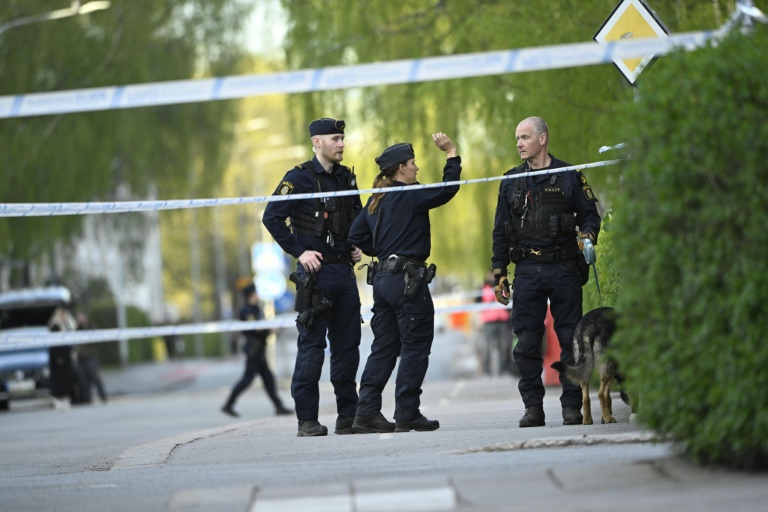
URGENT UPDATE: Teenage girls in Sweden are increasingly being recruited as hitwomen in the nation’s escalating organized crime wars. Just revealed by officials, a shocking case involved a 15-year-old girl who was hired to shoot a victim in the head, illustrating a disturbing trend in Sweden’s criminal landscape.
Stockholm prosecutor Ida Arnell disclosed to AFP that this young girl was arrested alongside a 17-year-old male accomplice after they attempted a hit that left the victim critically injured with multiple gunshot wounds. These alarming tactics reveal how girls are striving to outdo young men in the ruthlessness of organized crime, often engaging in violent missions arranged through encrypted messaging platforms.
Last year, authorities reported that approximately 280 girls aged between 15 and 17 faced charges related to murder, manslaughter, or other violent crimes. While it remains unclear how many of these cases are tied directly to organized crime, experts warn that the role of young women in these networks has been overlooked for too long, putting them in grave danger.
The rise in organized crime in Sweden has transformed the nation, once known for its low crime rates, into a hotspot for gang violence, drug trafficking, and extortion. Authorities now label these groups a “systemic threat” to public safety. The recruitment of minors, particularly those under the age of criminal responsibility, is a common tactic as gang leaders orchestrate operations from abroad, using intermediaries to carry out violent acts.
Justice Minister Gunnar Strommer acknowledged the lack of research into girls’ involvement in crime, stating,
“Preconceived notions about the role of women and girls in crime present the risk that they are seen neither as criminals nor as people in need of help.”
This admission highlights a significant gap in understanding the dynamics of gender within Sweden’s criminal networks.
Recent reports from the KSAN, an organization addressing drug and alcohol abuse among women, indicate that many young girls involved in crime also face victimization and significant vulnerabilities. Co-author Maria Ljuslin emphasized that a majority of these girls struggle with drug addiction and untreated trauma. Alarmingly, two-thirds of those who commit drug-related crimes have also experienced sexual violence.
The personal stories of those involved in this crisis reflect the harsh realities of life within organized crime. Natalie Klockars, who began dealing drugs at 19 to support her own addiction, recounted how her business grew rapidly, with over 900 clients at its peak. She was often underestimated due to her gender, which allowed her to operate under the radar, but the violence that accompanied her lifestyle ultimately led her to a life-changing decision.
Klockars faced a harrowing moment when she was threatened by armed men, forcing her to reconsider her path:
“I knew this was not the life I wanted to give my daughter.”
Since the birth of her child, she has left the criminal world behind, but her story underscores the dire circumstances many young women face.
With the National Council for Crime Prevention currently conducting an extensive study on crimes committed by girls and women, conclusions are expected in October 2023. These findings could shed light on the widespread participation of girls in criminal activities and the violence they endure.
As Sweden grapples with the profound implications of this crisis, the growing involvement of young women in organized crime remains a pressing concern. Authorities are urged to address the complexities of this issue to protect vulnerable girls and dismantle the networks that exploit them.
Stay tuned for further developments as this situation continues to unfold.





